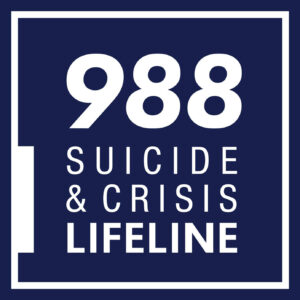Schizophrenia , often described as a type of psychosis, is when an individual may not always be able to distinguish their own thoughts and ideas from reality. Many individuals who struggle with this disorder experience either visual or audio hallucinations, meaning they see things or hear voices that are not there. They may also feel people are staring at them or talking about them when they are out in public. Mental disorders are often harder to diagnosis and treat because the symptoms may not be physically manifested. Often, a person struggling with psychosis does not realize they need help.
, often described as a type of psychosis, is when an individual may not always be able to distinguish their own thoughts and ideas from reality. Many individuals who struggle with this disorder experience either visual or audio hallucinations, meaning they see things or hear voices that are not there. They may also feel people are staring at them or talking about them when they are out in public. Mental disorders are often harder to diagnosis and treat because the symptoms may not be physically manifested. Often, a person struggling with psychosis does not realize they need help.
How Medical Conditions Qualify for Disability Benefits
Most medical conditions require more than just the diagnosis to qualify for disability benefits. Obtaining a diagnosis by an acceptable medical source is the first step. When dealing with a mental health condition, an acceptable medical source is a licensed psychologist or psychiatrist. Typically, Social Security will also accept a diagnosis from a family doctor but will give more weight to a specialist.
PSYCHOSIS AND SSA’S LISTING OF IMPAIRMENTS
 The SSA includes psychotic disorders under “Mental Disorders” in the Listing of Impairments, also known as “Listing 12.03” in the Blue Book. To meet the SSA’s listing for psychotic disorders, you must show:
The SSA includes psychotic disorders under “Mental Disorders” in the Listing of Impairments, also known as “Listing 12.03” in the Blue Book. To meet the SSA’s listing for psychotic disorders, you must show:
- Significant Impairment in Thought Processes or Communication: Your ability to think clearly, communicate effectively, or understand and apply information must be seriously affected.
- Marked Restriction in Daily Living Activities: This includes challenges with personal care, managing finances, and participating in community activities.
- Marked Difficulties in Maintaining Social Functioning: This refers to problems with forming and keeping personal relationships and interacting with others.
- Marked Difficulties in Concentration or Maintaining Pace: This means you struggle with completing tasks, concentrating, or maintaining pace in work or other activities.
- Episodes of Decompensation: These are periods of worsening symptoms that are of extended duration and significantly affect your ability to function.
In addition, the schizophrenia must significantly affect the person’s ability to perform at least two of the following: activities of daily living: dealing with other people; maintaining concentration, persistence or pace or repeated periods of decompensation for extended time. For example, a ninety-six-hour hospitalization might prove decompensation.
After You File a Disability Claim
Social Security will ask you to either obtain or allow your legal representative to obtain your medical records for them so they can see whether you are receiving prescribed medical treatment and following your doctor’s orders. They will also look at reported symptoms and mental status exams by medical providers. A mental status exam will note whether you are oriented to person, place and time. The tests may include math exercises to test your concentration and word exercises to test your memory. In addition, the medical provider will typically note what your mood or appearance was like and your general train of thought.
Regular medical treatment is important because it can show whether the person would improve with adequate functioning with treatment or will still struggle to perform competitive work. You may also get a medical opinion from your treating provider about your functioning, which could make the difference you file a disability claim. If Social Security finds the person’s schizophrenia is severe, they will next decide if the condition qualifies as a disability.
Knowing When to File a Disability Claim for schizophrenia Is Critical
Sometimes the medical evidence does not quite match up with Social Security’s requirements. However, they may consider schizophrenia along with any other medical conditions you have to decide whether you are unable to perform competitive employment. The important key is to get treatment and report ongoing symptoms from your schizophrenia. In addition, it helps to get into a support group such as the National Alliance on Mental Illness (NAMI) and be with other people who understand how it feels to have a mental illness.
Dealing with a mental illness on its own can be confusing and overwhelming on its own. When you add the possibility of filing for SSD to the mix, the entire process may seem unmanageable. Speaking with an SSD attorney can provide some clarity and direction to your situation.
If you are debating whether to file for SSD due to schizophrenia or other types of mental illness, contact Parmele Law Firm and schedule a free consultation. A specially trained team member will answer your questions and help you determine the next best steps.
The legal team at Parmele Law Firm has over 135 years of combined SSD experience and has helped over 55,000 individuals receive the benefits they so rightly deserved. Also, your initial consultation is no cost to you…what do you have to lose? Contact PLF today or visit our website for more information.
Parmele Law Firm. Guiding you with integrity, competency, and experience.
 Suicidal thoughts or behavior
Suicidal thoughts or behavior
A person with schizoaffective disorder may talk about or attempt suicide. If you have a loved one who is in danger of suicide or has attempted suicide, make sure someone stays with that person. Contact the suicide hotline at 988 and is available 24 hours a day, seven days a week. Services are free and confidential.
